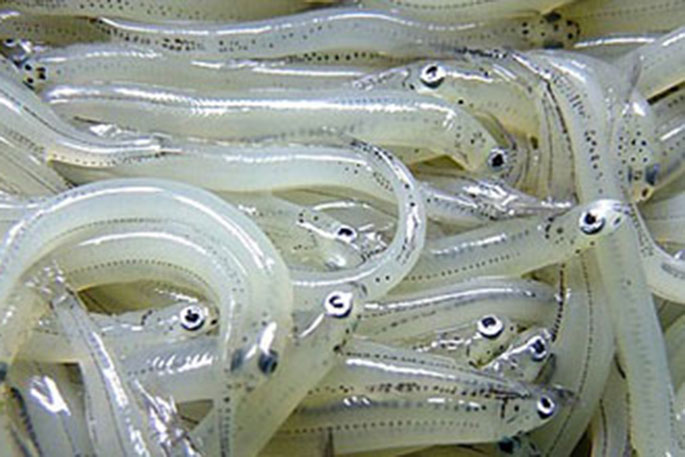A commercial ban on whitebait would force trade into a black market, a fishing group says.
But other recreational whitebaiters believe it is the greed from money that can be made from selling whitebait that is spoiling the fishery.
According to the latest conservation of freshwater species status, of the five whitebait species, three are considered "at risk - delining" and one is "threatened".
It is this which has got Forest and Bird pushing for an outright ban on the sale of whitebait, and a restriction on the recreational catch.
The West Coast Whitebaters Association represents both recreational and commercial fishers.
Its president Des McEnaney has been whitebaiting for more than 30 years. He said a ban on selling whitebait would be counter-productive.
"One of the things that you would almost certainly start up would be a huge black market in whitebait."
Mr McEnaney said the price would soar if it was banned "and that would attract every poacher that God put on the planet".
Southland Recreational Whitebaters Association chairman Roger McNaughton is nearly 70 and has been whitebaiting most of his life.
He said his own personal view was that whitebait should not be sold, but the law allowed it.
"It creates a lot of greed by individuals, so there's probably a few individuals out there ruining it for a lot of other people with breaking the regulations."
Mr McNaughton said people were being driven to catch as much as they could to sell.
Mr McEnaney did not believe the species was in decline, but said it was environmental problems with water quality and breeding sites that caused issues.
A Department of Conservation report on the species published in June found that little was known about the impact of whitebaiting.
The whitebaiting season runs between 15 August and 30 November for everywhere except the West Coast, which runs from 1 September to 14 November.
Tainui Recreational Whitebaiters Association president Marie Casford has been fishing for two decades on the Mokau and Awakino Rivers.
She said she did not fish in November because that was when adult fish were going up the river to spawn. She would support restricting the season at the tail end.
It was in everyone's interest for the fish to continue breeding, she said.
"We would like our grandchildren to fish them as well and they're very delicious and we like to eat them, but you don't need to catch tonnes of them."
The government is undertaking a review of the whitebait fishery.




2 comments
Stench
Posted on 17-08-2018 08:26 | By peecee09
There is a suggestion that there are alternative white baiting locations available? The streams along with the Kaikokapu that drain into the Little Whaihi estuary being some. I once fished these streams but when my whitebait turned a lemon yellow colour I stopped fishing there. There are about 7 large pipes from which runoff from dairy farms is pumped into these streams, it is a dirty tea coloured disscharge and if you ventured to where these streams enter the estuary you would discover the stench almost unbearable. So much for being environmentally caring. Farm runoff is destroying this once pristine area, and it continues unabated, disgusting.
Yeah right.
Posted on 17-08-2018 08:31 | By Marshal
Anyone with a little intelligence who whitebaits, knows most sales are black market already.. A ban is the only way to save the resources. I whitebait three or four days a year only now.. I have seen a huge decline in the last 40yrs. It is not far of the end, unless something is done without all the years of hand wringing and consultation.. Just do it or have a 5yr total Ban..
Leave a Comment
You must be logged in to make a comment.